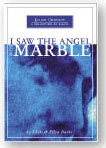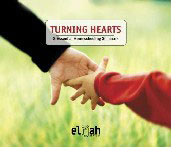|
What's Love Got to Do With It?
Read past issues of the
e-journal HERE>>
Sign up below to have the e-journals sent directly to your inbox.
by Ellyn Davis
I don't know whether Valentine's Day is a pagan ceremony or not. But it sure is good for retail sales! And it doesn't hurt to be reminded of those we love (and reminded to love).
It just so happens this week I have been helping a friend who has been going through a lengthy period of deep depression and I came across this in a book about emotional healing we are reading together. It really affected me and I wanted to share it with you. I'm going to quote several passages from the book:
"All of us have one primary dramatic theme in our life that we have been repeating since our childhood. It is the dysfunctional definition of love we learned as children. Each of us has an unconscious definition of love that is the 'emotional signature' we experienced as children when we asked for love. Therefore, it is the emotional signature that we unconsciously recreate in our life experience whenever we feel the need to be loved or whenever we attempt to show our love to a specific 'other.' "
"Whenever we attempt to have a loving relationship, it will appear as if the 'other' keeps doing 'this unloving thing' to us. Our personal negative pattern will reveal itself in the 'conditions' the 'other' lays down for us for them to consider us loveable (and for us to feel like we are loveable to them)."
The book goes on to say that our "unconscious definition of love" or our unconscious belief about the nature of love seeps into every area of our lives, but reveals itself most clearly when it comes to our primary relationships. The way our attempts as children to get love were met by our parents has imprinted us with a definition of love based on our childhood experiences. For example, if, when we were children, every time we looked to our parents for love, they responded with abuse, then we learned to associate abuse with love and as adults will look for intimate relationships where we are abused in some way.
Our Unconscious Definition of Love
My friend has been through one painful relationship after another, and, as we worked through the exercises in the book, we realized that the gist of her parents' training in loving relationships was this: "Your primary purpose in existence is to make a man happy, but I'm going to raise you to be attracted to men that can never be happy with you. So you will never achieve what you're trying to achieve because you will be attracted to men for whom you will never be 'enough.' But a good woman keeps trying and trying, even knowing she will never be 'enough.'"
Wow! That's a terrible unconscious definition of love - "I will try and try to make my loved one happy but I will never be enough for him." No wonder she's gone through terrible bouts of depression.
And what must that make her feel about her relationship with God? She will try and try and try to do what she thinks will make him "happy," but in her heart of hearts will never be able to believe she is "enough."
I have to admit that I had a lot of that same imprinting in me. I grew up in a generation and culture where women were not highly valued as much other than help-meets to men (in the worst sense of the word).
So when I first became a Christian, God just seemed to be another hard-to-please male authority figure to me.
It was only much later that I realized that the whole scope of history has to do with a divine romance - a story of a Bridegroom so in love with his Bride-to-be that he would do anything for her, even die for her. And he knew she was weak and sinful and unfaithful and had a really messed-up definition of love that would cause her to believe all kinds of things about him that aren't true... but he loved her anyway.
And it's that messed up definition of love that the book talks about. That warped concept of what loved is that we learned as children and that we've carried into all our primary relationships - including our relationship with God.
How do you find your unconscious definition of love? One of the things you can do is think about the "conditions" that you always feel are laid down for you by those you try to have a deep, intimate relationship with. My friend's list of conditions in her close relationships she always feels like she has to live up to in order to be loveable goes something like this:
1. You will take care of me emotionally, physically, and probably financially.
2. I will only give a "slice" of myself to you…but will expect you to give all of yourself to me.
3. You are to support my image of myself as a victim.
4. My "bucket" is full of holes but you are expected to keep it full. Your bucket doesn't matter in comparison to mine.
5. I will pretend to be someone different and better than who I really am. You will keep the secret of what I am really like to yourself.
6. No matter what you do and no matter how well you live up to my conditions, I may never be completely satisfied with you…but keep trying because eventually I might.
And that's only part of the list! Her unconscious definition of love turned out to be: "I am exploited and treated with willful disregard, as if I am an object of little value instead of a person. "So what kinds of relationships does she seem to gravitate toward? Relationships where she is the caregiver and responsible one and the other person uses her. No wonder she's so depressed all the time! No wonder she has trouble believing that God is little more than a tyrant.
Anyway, when I began understanding this concept, I wrote my own list of "conditions" I feel like were always laid down for me by those I try to have a close, intimate relationship with. When I read my list and saw what it meant about my unconscious definition of love, I realized that I had passed down some of my unconscious definition of love to my children.
The book says our unconscious definition of love "is something we inherited from our parents and that they inherited from theirs. It is an unconscious belief system about the nature of love that we share with the rest of our immediate family. It will appear within our family's relationships in some form or another because families usually share the same unconscious definition of love."
Solutions
Our whole lives have usually been a search in one way or another for the unconditional love we never received but know in our hearts we should be receiving. I think God puts that "knowing" in our hearts so we will be receptive to His unconditional love. But, because we live in a fallen world, those who say they love us are never really able to love us unconditionally because they've never experienced unconditional love themselves. So we form a misguided, dysfunctional belief about what love is and we try to play out that belief in all our close relationships. If, when we asked for love as children, we experienced abuse, then when we're grown, abuse will "feel" to us like love. And we'll project that definition of love onto everyone we try to get close to - including God.
So what's the solution? The first solution is awareness. If we can see that our unconscious definition of love is warped, then we can stop blaming our loved ones for the things they do and the conditions they lay down for us that don't seem loving. After all, we need for them to do those hurtful things to us because those things are what we associate with being loved and loveable.
The second solution is to get an idea of what healthy love is and start giving that to ourselves and to those we love. The best place to find a healthy description of love is in I Corinthians 13.
"Love is patient, love is kind...." Am I patient with myself? Am I kind to myself? What are the ways God is patient with me? You can go through every verse like that, applying it first to your relationship with yourself, then with God, then with your loved ones.
The third solution is to get a grasp of God's unconditional love. It's pretty much summed up in the verse, "While we were yet sinners, He died for us." His love is unconditional. There's no ulterior motive, no hidden agenda, no wanting to save you so you can be some pawn in his cosmic game of chess. He loves and expects nothing in return. That's the essence of unconditional love - it's given with no strings attached. It's a gift that we can choose to receive or ignore or even misuse.
"If he did not spare his own son, but freely gave him up for us all, can we not trust such a God to also give us all things?"
Resources:
OK, I know some of you are wondering, "What's the book she read?" I'll tell you what it was, and I will also recommend that you read it. But I need to tell you that it is not a "Christian" book. But that doesn't keep it from sharing life-changing concepts. The book is called The Presence Process by Michael Brown. It's really about how we tend not to live our lives because we're rarely "present" in them. We're always off in our minds and emotions in our regrets and anger about the past or in our hope or fear of the future. This book is transformational, but it is definitely not coming from what we would consider a typical "Christian" perspective.
What is a Family. This is one of the best books we have ever read. We re-read it periodically, and each time are brought to tears—tears of longing because it so perfectly expresses what we want our family to be like. Edith Schaeffer shares how the family is meant to be the birthplace of creativity: a center for the formation of relationships: a museum of wonderful memories that provide a hedge of protection around our children; an educational control; a perpetual relay of truth; and more.
For the Children’s Sake. Susan Schaeffer Macaulay continues to follow in her mother Edith Schaeffer’s footsteps, and in this book describes how to develop relationships filled with grace, beauty, and love. She views education as “the diet that opens doors for each child to build a relationship with God, other persons, and the universe.”
For the Family’s Sake. Edith’s daughter Susan Schaeffer Macaulay takes up where her mother left off. By showing the power a godly home can have in a child’s life, she challenges every one of us to treasure the precious time we have at home with our children.
How to Really Love Your Child. In this extrordinary book, Dr Ross Campbell helps parents manifest love toward their children in all situations of child-rearing through the teen years. Many parents do not know how to express affection in ways that make a chid feel loved. This book details practical demonstrations of that are meaningful to children.
How to Really Love Your Teenager is specifically addressed to parents of teens. Dr. Ross Campbell believes that parents experience their greatest difficulties at this stage because they are unable to relate to the moodiness and self-identity issues that teens go through. So parents often harbor misconceptions and face disappointment in their relationships with their teens. This book offers ideas to help you communicate unconditional love, handle teenage anger . . . as well as your own, deal with adolescent depression and help your teenager grow spiritually and intellectually.
The Five Love Languages.
Unhappiness in a relationship often has a root cause: we speak different love languages. Each of us has a "love language" of certain actions and words that when others use them it makes us feel loved. Do you feel most loved when those you love spend quality time with you, give you gifts, speak words of affirmation, perform acts of service, or when they touch you affectionately? This is a very thought-provoking and helpful book because it has given us greater understanding of how to show we care in a way that is most meaningful to the other person.
The Five Love Languages of Children and The Five Love Languages of Teenagers focus on finding the form of love most meaningful to each of your children and how to express love in ways that they can truly appreciate and receive it.
The Blessing. In the Bible, the parents' blessing was especially powerful, often defining the course of a child's life. This book discusses how a parent's words can shape identity for good or evil, and how what we speak over our children can hlep them become who God means them to be. It also shares the heartache a lack of parental blessing can bring, and how we can confer a blessing upon our children.
The Shack. This book is absolutely amazing! My son Seth gave it to me for Christmas and reading it has touched a deep place in my soul and spirit. This book has been a real lamp-post in my journey of searching for truth about the love of God and why God allows things that are unbearably painful. Not only does Young ask the hard questions about pain that we all have to face at some point in our lives, but he addresses them head-on from a no-nonsense “God is love and that settles it” perspective.
Hailed by Eugene Peterson (author of The Message Bible ) as “the Pilgrim’s Progress of our generation,” it will both expand and challenge your pre-conceived ideas of The Trinity, God’s love, and His role in relationship to human suffering. It’s a fantastical journey into the Heart of a Wonderful and Caring Creator who loves to see His children free of pain and unforgiveness so that all hindrances to an intimate relationship can be eliminated. One of my new favorites, I can’t help but call it a must read. This book will change your life! ) as “the Pilgrim’s Progress of our generation,” it will both expand and challenge your pre-conceived ideas of The Trinity, God’s love, and His role in relationship to human suffering. It’s a fantastical journey into the Heart of a Wonderful and Caring Creator who loves to see His children free of pain and unforgiveness so that all hindrances to an intimate relationship can be eliminated. One of my new favorites, I can’t help but call it a must read. This book will change your life!

Juice Plus
 I want to spotlight a product I've found that has made a real difference in my health. It's called Juice Plus+ and it is an easy, affordable way to make sure you and your children get all the fruits and vegetables they need. I want to spotlight a product I've found that has made a real difference in my health. It's called Juice Plus+ and it is an easy, affordable way to make sure you and your children get all the fruits and vegetables they need.
Juice Plus+ even has a children's health program that lets you get the capsules free for children between the ages of six and fifteen. Plus, there is a family plan to make Juice Plus+ even more affordable.
Another bonus is that Juice Plus+ makes a great home business that Moms can run to make money while they're home schooling.
So, check it out by going HERE>>

Home School Resources
I Saw the Angel in the Marble

With over 4,000 copies sold in just a few months, I Saw the Angel in the Marble is becoming a home schooling best seller!
This book represents the best of 15 years of Elijah Company articles. Find our more HERE>>
Turning Hearts: Davis Seminar Set (8 CDs)
The Best of Chris and Ellyn Davis, this set contains seminars given by Chris and Ellyn Davis of The Elijah Company at home schooling conventions. The set contains all of the favorites that home schoolers ask for over and over. People have told us this set of CDs changed their lives. Find out more about them HERE>>
Angel in the Marble/Davis Seminars Set
Order a combination of I Saw the Angel in the Marble and the Davis Seminars CDs HERE>> |



 I want to spotlight a product I've found that has made a real difference in my health. It's called
I want to spotlight a product I've found that has made a real difference in my health. It's called 




